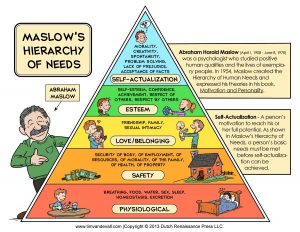… in practice the standard for what constitutes rape is set not at the level of women’s experience of violation but just above the level of coercion acceptable to men.
~Judith Lewis Herman
I believe it is important for us to understand the different aspects of our oppressive and harmful culture. This essay was originally published in my newletter in May of 2017 and has been edited for publication here.
What does rape culture look like?
It’s a million different things. I believe that the Netflix series 13 Reasons Why depicts rape culture perfectly. Also you can watch Audrie & Daisy; A Girl Like Her; and/or The Hunting Ground as other films (two of them documentaries) of rape culture.
Rape culture looks like the sexualization of young girls. Also see beauty pageants and the likes of Toddlers & Tiaras.
It looks like rapists receiving lenient sentences. See: Brock Turner. Or rapists and sexual predators being awarded positions of power and prestige. See: Donald Trump, Brett Kavanaugh.
It looks like being re-traumatized when we do report a rape. See: being in the wrong place at the wrong time; what was she wearing; she should have known better; she shouldn’t have been drinking; etc.
It looks like being gas lit when we describe our experiences. See: Oh, he didn’t really mean that; You misunderstood; You’re too uptight; Stop taking everything so seriously; and my personal favorite – They were only joking.
It looks like random men trying to friend you on social media.
It looks like random men sending you pictures of their penis through social media. It also looks like the social media platform doing essentially nothing and blaming the victim when it is reported (see example below).
It looks like men in power making ludicrous public statements about women and rape (see other example below).
It looks like being afraid to say no.
It looks like not knowing how to say no.
It looks like not understanding boundaries, ours or others.
It looks like being told you don’t know your own body.
It looks like being told to obey authority.
It looks like being told to unquestioningly trust authority.
It looks like not feeling safe walking down the street in broad daylight.
It looks like not feeling safe walking down the street at night.
It looks like not feeling safe in our own homes.
It looks like mansplaining.
It looks like manspreading.
It looks like having a self-admitted sexual predator as the President of the United States.
It looks like…
It looks like…
It looks like…
I could go on listing things for pages and pages. But I hope you get the point.
Sometimes the insidiousness and pervasiveness of rape culture can feel overwhelming. It can feel like too much and that it will never change and that nothing we attempt to do about it will ever matter.
I get it. I so deeply get it.
I have my own personal experiences of sexual assault, abuse, and harassment.
I grew up in a family that pretended the incest wasn’t happening.
I grew up in a culture that told me it was my fault. I should feel deep shame.
I was told I wasn’t really raped.
I’ve been asked what I did to “encourage” my sexual assaults and harassment.
I was told I was asking for it.
I’ve been called a bitch for calling rape culture and rapists out.
I’ve been threatened with physical violence when I have called rape culture and rapists out.
To date my daughter’s physical safety has not yet been threatened due to me using my voice, and I’m sure that day will come too. (See: any number of vocal feminists on social media.)
I share all this to say Me too. And You are not alone. And I get why sometimes some of us do NOT speak up and out. And I believe survivors.
And also.
I know that remaining silent, looking the other way, pretending things aren’t that bad, is all an act of compliance.
I know that not talking about rape culture, not calling it out, not talking about consent and boundaries, not talking about all the ways our culture conditions us to to obey, all of this is complicity.
I know that it can be terrifying to speak up and out (that is intentional and by design, by the way).
I know I have been so scared speaking up that my whole body shook.
I also know it is much safer for me to speak up and out than it is for others. (This is my privilege and I intend to use it to the full advantage of all of us.)
I know that if I don’t speak up and out change won’t happen.
I know that when I speak up and out I am creating ripples and shifts in our culture.
I know when I speak up and out, others hear my voice and know they are not alone.
Countless FB and IG friends, along with myself, have received a private messages from a not-known-to-us men over the last couple years. In these messages there is almost always an image of, supposedly, the sender’s penis. Total strangers. Unsolicited in any way.
One particular friend ended up in FB jail for 24 hours because she took a screen shot and then publicly posted the picture to a couple of his friends/family pages so they would see what he was up to. (If you have a stronger reaction to her retaliation than you do to the fact that a total stranger felt it was okay to send her a picture of his dick via private message, then… well that is a perfect example of rape culture in action.)
She reported it to Facebook as sexual harassment and essentially they did nothing. Oh, they gave him a warning. If it happens again (as in he does it again AND the woman he does it to reports is properly) he may be put in FB jail. Then she was told not to talk to strangers on messenger.
*eye roll*
Isabel Abbott posted the following quotes by US politicians last year. All of the men quoted here are Republicans, and let me be perfectly clear that Democrats uphold and are complicit in rape culture too. They are, perhaps, simply more secret about it. (You can see Isabel’s original post here. Also, in the comments she provides the original context for each quote below)
(note: offensive and distressing words about sexual violence below)
“Rape is kind of like the weather; if it’s inevitable, relax and enjoy it.”
-Clayton Williams
“If a woman has (a right to an abortion), why shouldn’t a man be free to use his superior strength to force himself on a woman. At least the rapist’s pursuit of sexual freedom doesn’t (in most cases) result in anyone’s death.”
– Lawrence Lockman
“Rape victims should make the best of a bad situation.”
-Rick Santorum
“If it’s a legitimate rape, the female body has ways to shut that thing down.”
Todd Akin
“In the emergency room they have what’s called a rape kit, where a woman can get cleaned out.”
– Jodi Laubenberg
“Even when life begins in that horrible situation of rape, that is something God intended to happen.”
– Richard Mourdock
These are men in power. These are men who are making the laws of our country. These are men who have wives and some of them daughters and all of them have mothers. These are men who see absolutely nothing wrong with the words they have said.
This is rape culture.
And.
These men didn’t become powerful without women :: they all have wives who supported them in various ways, and more importantly women voted for them. Without the women’s vote, they would not be in office.
Let’s sit with that for a second.
Let’s also sit with the fact that 45% of white women who voted in the presidential election in 2016 voted for Trump, a self-admitted sexual predator.
We have a lot of work to do to unearth and unravel and dismantle and dislodge from our being, the culture we are currently living in.
All of us.
It could be easy to blame our current culture on men. In fact it would be really super easy to do that.
And yes, men are responsible for their actions and words. Absolutely.
And yes, we need more men to stand up and speak out against rape culture. To call their friends and brothers and dads and uncles out on it. To teach their sons to respect boundaries. To dismantle their own internalized toxic masculinity.
Yes.
And.
The rest of us need to do the work too.
As in us women.
Mothers. Aunties. Voters.
We need to unearth and explore and dismantle and dislodge all that we have internalized and been conditioned to believe.
So we can know our own boundaries. So we can understand consent. So we can learn to say no and yes. So we can respect the noes and yeses of others.
So we can stop supporting sexual predators, rapists, those who physically threaten and assault us and others.
So we can burn down rape culture and create a world of consent culture.
Our first steps in burning it down, are being able to see it. To name it. To know what rape culture is and what it looks like in daily practice.
Our first steps are also finding our voice and learning ways to speak up and out.
Even knowing we may not be safe in doing so. Even knowing this is going to make us and those around us very uncomfortable.
There is great risk involved in tearing down our current culture. Great risk to the status quo. Great risk to our own perceived comfort and safety.
Here’s a thing though :: we aren’t safe in the culture we currently live in. Our sense of “safety” is a lie. A lie meant to keep us complicit and compliant.
I am willing to risk being disliked. I am willing to risk being hated. I’m even willing to risk my own physical safety to a certain degree to create a world I want for my children and for you and yours.
These are not actually risks per se for me. They aren’t risks because in many ways they are things I don’t actually care about (other than my physical safety).
There is far greater risk in allowing the world to keep chugging along as it is and sending my children out into it. Knowing the statistics. Knowing the statistics are only for what is reported. Knowing the reality that I am sending my daughter into.
I want something different for her. And for my son. And for you. And for me too.
I want those statistics to be a dark spot on our human history and no longer our human reality.
And so.
I will continue to speak up and out. I will continue to write about the ways our culture oppresses and dehumanizes us. . I will continue my work in anti-authoritarian activism and will continue to promote consent culture. I will continue to call out my profession and the ways it is complicit and compliant. I will continue to raise my kids to understand and respect noes and yeses – their own and others. I will continue to help others unearth, dismantle and dislodge the ways rape culture has gotten into their own bodies and minds and beings. I will do everything I can to BURN IT DOWN and help create a world where this atrocity no longer exists.
I am not alone in this work. And neither are you.
Together we will do this. I deeply and wholly believe that.
/../
To subscribe to my weekly newsletter you can fill our this form here.

